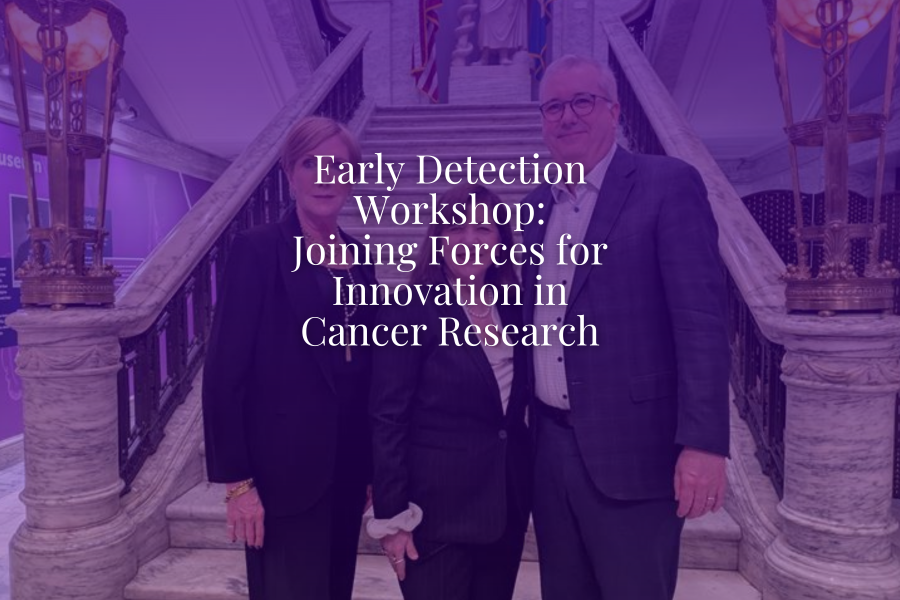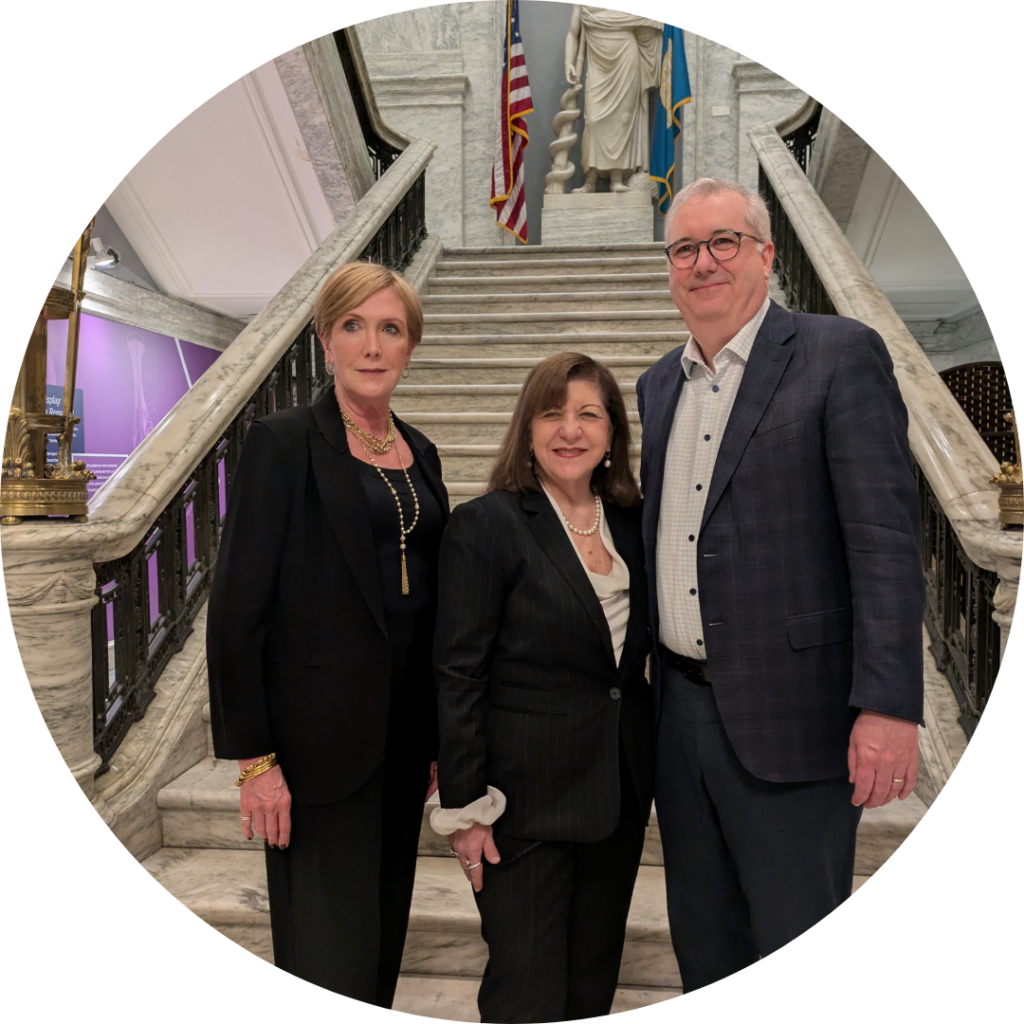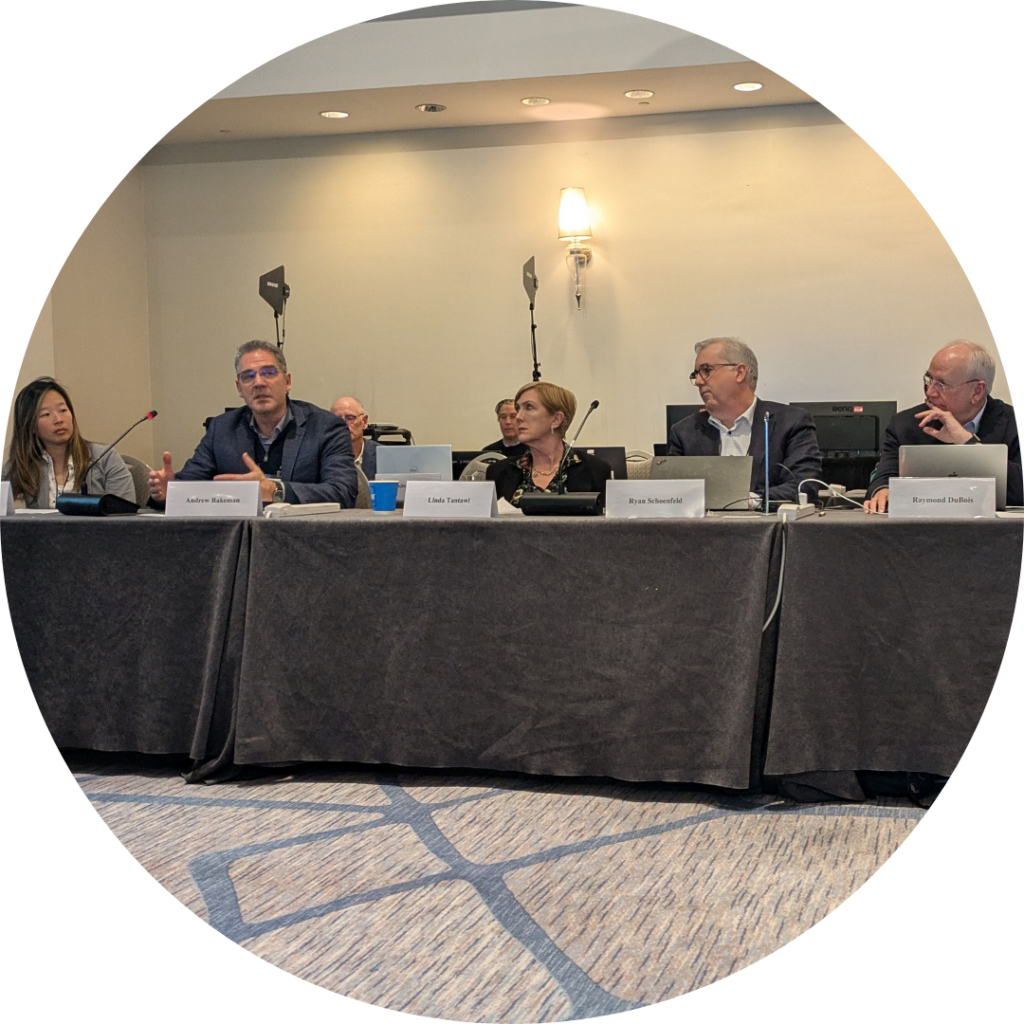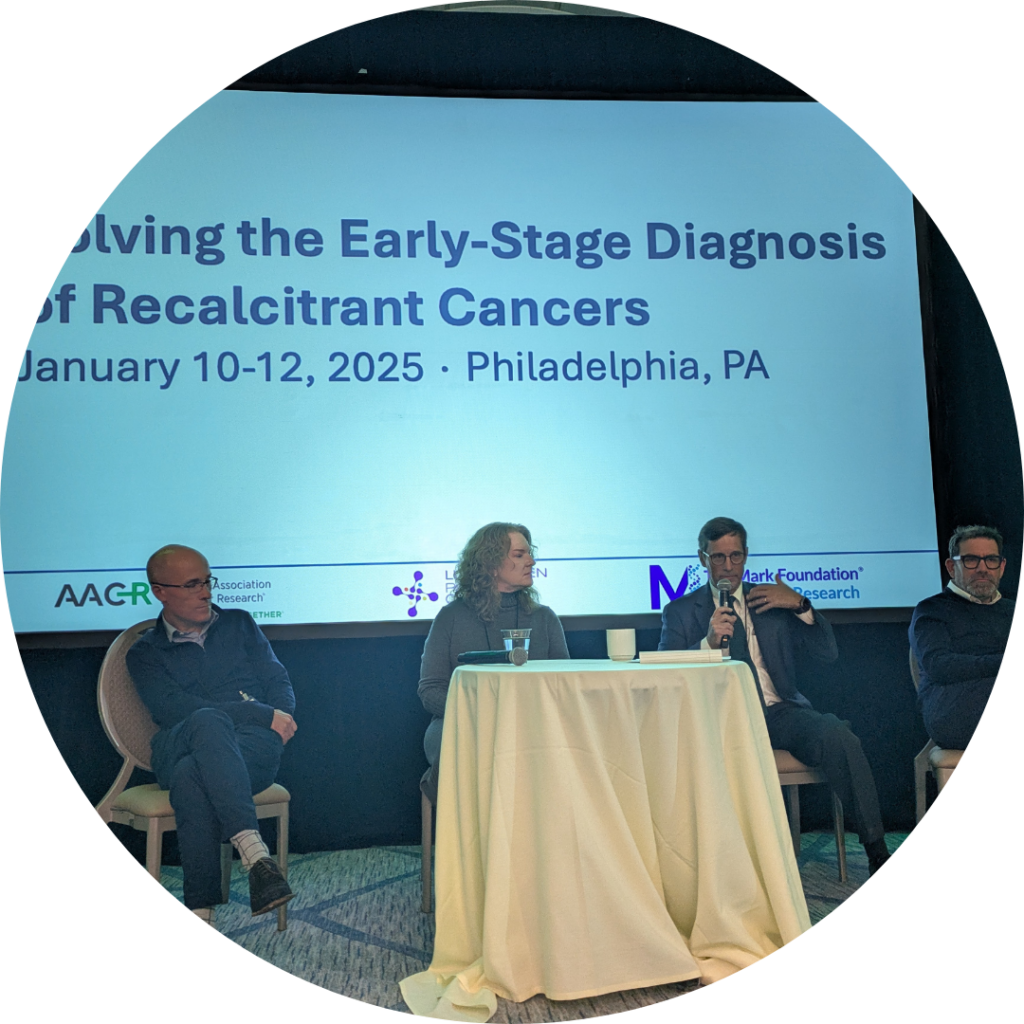Early Detection Workshop: Joining Forces for Innovation in Cancer Research
Topic: Announcement, Hide on Homepage


On Friday, January 10th, leading cancer research experts convened for a workshop focused on Solving the Early Detection and Diagnosis of Recalcitrant Cancers. The event, jointly hosted by the Lustgarten Foundation, the Mark Foundation for Cancer Research, and the American Association for Cancer Research (AACR), showcased how partnership drives progress in addressing critical gaps in cancer research, particularly in early detection—a frontier that holds promising life-saving potential.
A Powerful Alignment
For 26 years, Lustgarten has championed advancements in pancreatic cancer research, specifically focusing on early detection and interception, therapeutic development, and personalized treatment efforts. Guided by a commitment to collaboration, Lustgarten fosters information sharing as a critical driver of progress—a value shared by both AACR and the Mark Foundation for Cancer Research.
During early discussions, the Lustgarten Foundation and the Mark Foundation realized their alignment in prioritizing early detection research. While Lustgarten maintained a pancreatic cancer focus, the Mark Foundation, which actively partners with scientists to accelerate research that redefines the prevention, diagnosis, and treatment of cancer, expanded the scope to include other cancer types. As plans for a workshop began to take shape, AACR, the first and largest organization dedicated to conquering cancer, was invited to the table, adding its expertise and extensive network to the initiative. This collaboration first materialized with a smaller meeting in June 2024, bringing researchers together to brainstorm and lay the groundwork for the January event.

Addressing Key Challenges in Early Detection
The Early Detection Workshop assembled experts from diverse fields to discuss some of the most pressing issues in cancer research. Participants were split into groups, each focusing their discussions on:
- New Methods to Detect Pre-Invasive Cancers: Researchers presented innovative technologies and approaches for detecting cancers before progression to invasive stages.
- Multi-Modality Early Detection: This group explored how combining methods could improve detection in individuals at high risk for cancer.
- Clinical Trial Design and Regulatory Strategy: Challenges in designing effective and ethical trials for early detection technologies were discussed, alongside strategies for navigating regulatory and economic hurdles.
- Interception and Early Intervention Therapies: Participants examined therapies aimed at halting cancer progression at the earliest possible stage.
New and existing technologies, improving clinical trial frameworks, and ensuring real-world applicability of laboratory innovations were key discussion topics. The emphasis was on creating sustainable and scalable solutions that could address the lack of effective early detection across various cancer types, including pancreatic, ovarian, and brain cancers.

A Spirit of Collaboration
Workshop chairs and group leaders including world-renowned researchers such as David Tuveson, MD, PhD, Director of the Cold Spring Harbor Laboratory Cancer Center and the Chief Scientist for the Lustgarten Foundation, Elaine Mardis, PhD, co-executive director of the Steve and Cindy Rasmussen Institute for Genomic Medicine at Nationwide Children’s Hospital, Charles Swanton, MBPhD, FCRP, FMedSci, FAACR, FRS, Deputy Clinical Director of the Francis Crick Institute, and Luis Diaz, MD, Head of the Division of Solid Tumor Oncology at Memorial Sloan Kettering Cancer Center. The event attracted participation from major organizations interested in early detection beyond the three sponsoring organizations, including representation from Break Through Cancer, Stand Up to Cancer, NIH, the American Cancer Society, GRAIL, Exact Sciences, and more.
The diversity of expertise underscores the collaborative spirit of the initiative. Each participant brought a unique perspective, fostering cross-disciplinary discussions that will shape the future of early detection research.
A Promising Path Forward
As a leader in cancer research, the Lustgarten Foundation prioritizes uniting like-minded organizations to overcome barriers and advance progress in treating some of the most challenging cancer types, including pancreatic cancer. Collaboration among researchers and funders is essential to improving patient outcomes and realizing a shared vision of a future with cancer cures. Progress in early detection not only brings us closer to curing cancer but to preventing it altogether.

